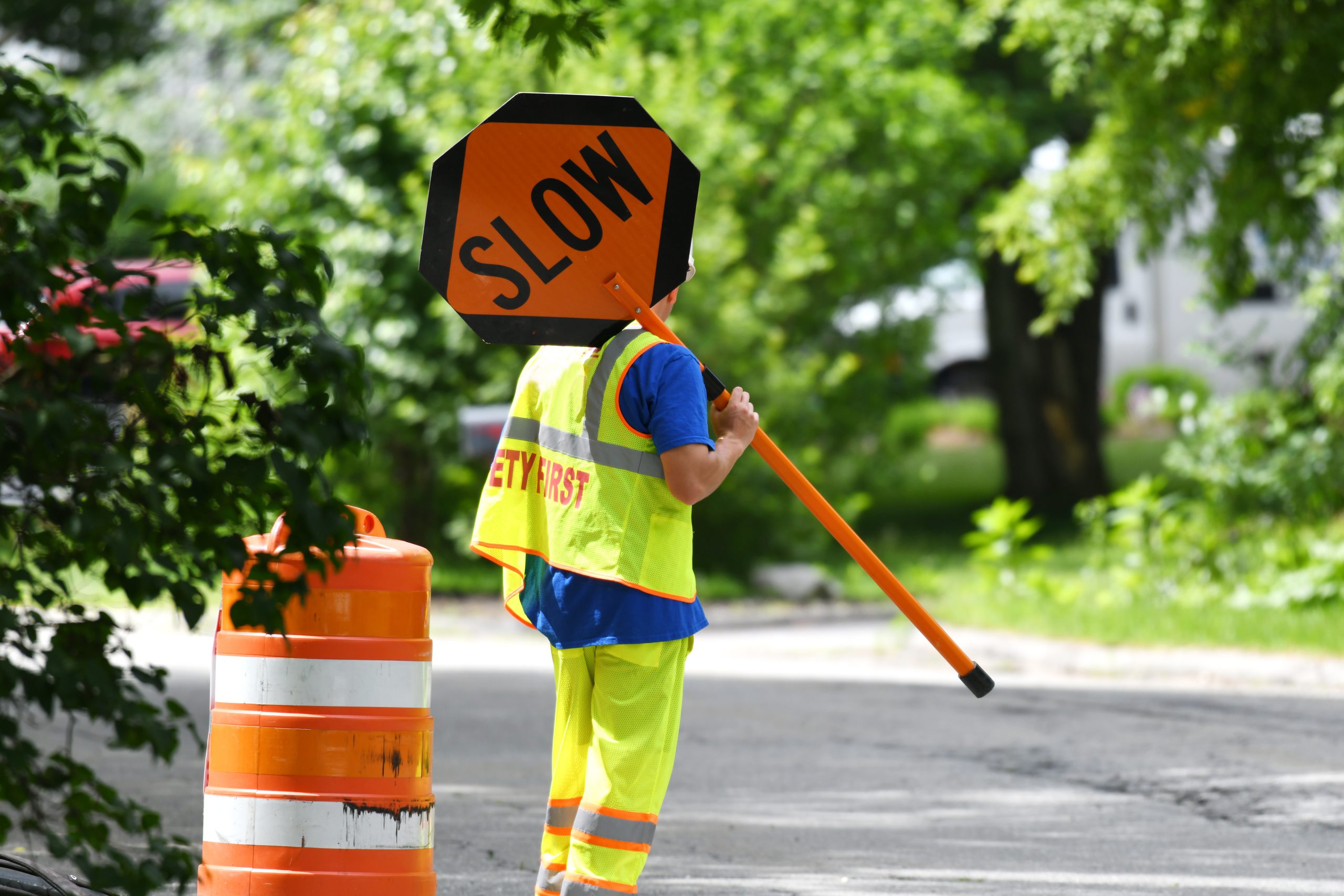
End of daylight savings prompts warning for workers on, near roads
November 2, 2022
By
OHS Canada

Photo: Adobe Stock
While most people will be ecstatic to have another hour of sleep on Sunday, Nov. 6, the end of daylight savings time can pose a significant hazard, according to Construction Safety Nova Scotia.
With the benefit of an extra hour of light for morning work comes the downside of darkness arriving earlier in the evening, it said. The sun will be setting around the same time as rush hour, which is problematic for road workers or any individuals working near a road.
According to the National Road Safety Foundation (NRSF) in the United States, car accidents increase after the clocks fall back an hour. The foundation points to a lack of visibility as well as darkness causing driver fatigue as contributing to the uptick.
Safety tips
Construction Safety Nova Scotia offers the following safety tips for industry employers.
Wear reflective gear: Ensure all your workers have proper reflective clothing and add additional reflectors or reflective tape if needed.
Ensure proper work site lighting: Having the right lighting on a construction site is always important, but it becomes even more crucial when there is less natural light in the environment. Make sure you have a reliable source of lighting so workers can see their task at hand.
Ensure sufficient personal lighting: Make sure workers have flashlights, headlamps, pen lights, or whatever they need to see the intricacies of the work they are performing.
Have a winter emergency kit: The workplace should have a winter emergency kit handy and each work vehicle should be equipped with an emergency vehicle kit. Take the time to make sure both are well-stocked and ready for winter.
Book your appointment for winter tires: If you haven’t done it already, now is a good time to you’re your appointment to swap your fleet’s all-seasons for snow tires. Manufacturers generally recommend changing over when the temperature is consistently below 7 C.
Snow tires go a long way in improving traction and shortening braking distance, making driving much safer. Encourage workers to make the switch on their personal vehicles as well. Include snowbrush as well. Mornings are getting frosty and visibility is reduced if not prepared. Does the road look wet? If you can’t see water coming off the tires on the car in front of you, there’s good chances the road is frozen.
Practice good housekeeping before it gets dark: You don’t want any workers slipping or tripping on whatever might be laying around the site. Take some extra time before the sun starts going down to tidy up and remove any hazards.
Toolbox talk: Supervisors should prep their workers for the upcoming time change by relaying these tips for the workplace but also relating them to their home life as well. It’s a great time to be reminded to wear a reflector on your jacket when walking the dog, check around your house for hazards that you or the kids could trip on when coming home in the dark, and make sure your second car is equipped with a vehicle emergency kit too.
Source: Construction Safety Nova Scotia
Construction Safety Nova Scotia (CSNS) is an industry funded not-for-profit association focused on improving occupational health and safety in the construction sector.